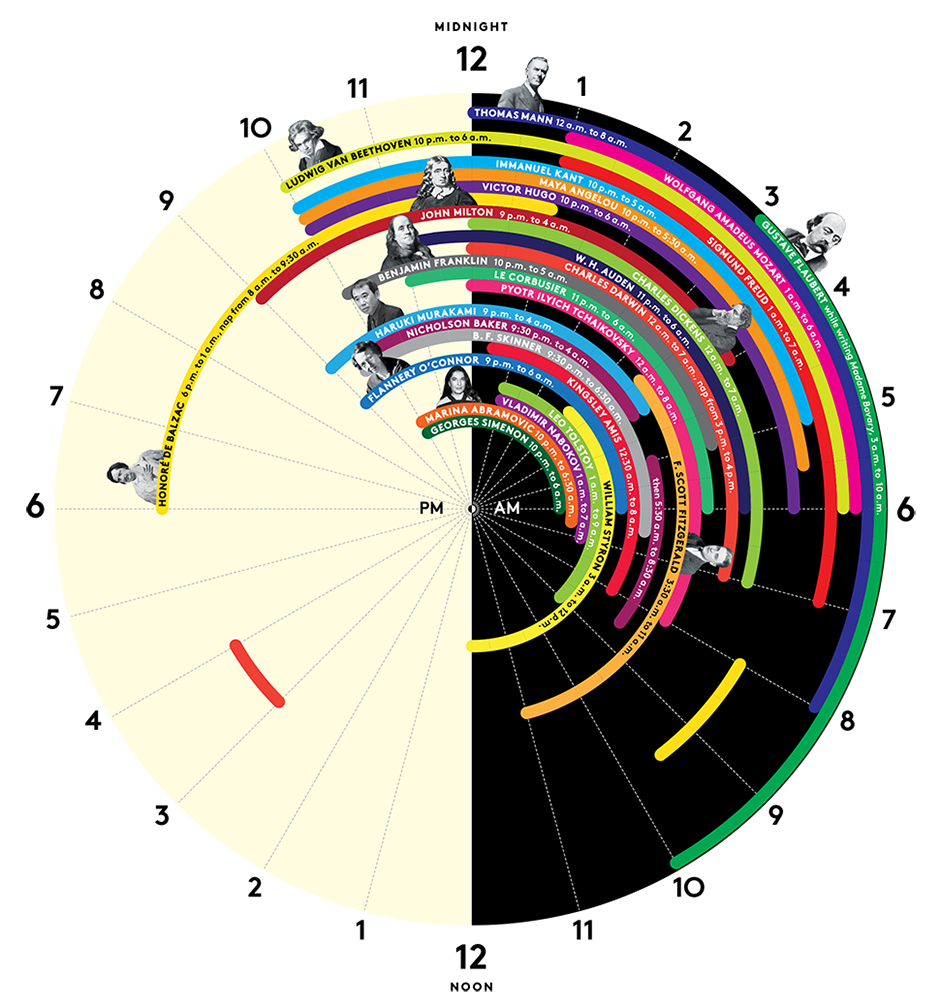It’s no secret that it’s important to get a good night’s sleep. Anyone who has ever gone to work tired or drifted off to sleep out of exhaustion understands that lack of sleep can have an impact – and anyone who has ever woken up refreshed after a night of great sleep knows a little about the restorative power of sleep. Similarly, those of us who have experienced jet lag know that sleep is a cycle, and that disrupting its rhythm can have consequences.

4 Gadgets to Reduce Anxiety and Help You Sleep
But sleep’s impact goes beyond what we can feel. It has real and concrete health effects, and managing your sleep schedule can help you lead a better, healthier life.
What is a “circadian rhythm?”

Nightmares Got You Down? How to Deal with Troubled Sleep
We sleep at night and are awake during the day. That’s a simple fact with complex roots: we have actually evolved to do this because of the Earth’s own rhythms. After all, it’s the Earth’s rotation that determines how long night and day are – if we’d evolved on some other planet, our sleep schedules might look very different.
This sleeping pattern is called our “circadian rhythm,” and it is programmed into our biology (and not just ours – a group of scientists just won a Nobel Prize for work in this area with fruit flies). And since this rhythm is biological, disrupting it can have real health consequences.
The health risks of lack of sleep
Busy Days, Crazy Nights: Today’s Top Android Apps for Tired Dads
It’s common knowledge that getting too little sleep will affect us psychologically. Without sleep, we become more irritable, think less clearly, and can be more emotional. But sleep affects more than just mood.
Studies show that poor sleep patterns over long periods can have serious physical effects. Long-term sleep issues increase our risk for a host of medical problems, including both physical and mental ailments. People who get poor sleep over long periods increase their risk of hypertension, diabetes, obesity and depression. Even disastrous health events like heart attacks and strokes are more likely to occur in the sleep-deprived. It is no exaggeration to say that poor sleep patterns can land you in the hospital.
The health benefits of good sleep
4 Smart Ways Structuring Your Routine Can Increase Focus
The good news is that good sleep patterns have as many benefits as poor sleep patterns have drawbacks. Changing your sleep patterns for the better will help you roll back the risks of the ailments listed above, and studies show that you’ll also improve your mind. You’ll be in a better mood and will even have better memory – studies connect a good night’s sleep to better information retention.
Your Body Recognizes Stress Before You Do
In short, a good night’s sleep is a vital part of your health. Comfortable mattresses and water pillows are as essential as toothbrushes or daily medication, so make sure that you’re investing in your rest! You can also use technology to aid in your quest to manage your circadian rhythms. Apps can be used to track sleep and gain insight, and wake-up lights – which replace your alarm with a gradually increasing light – can mimic sunrise to give your body a more natural waking process that is better for your sleep patterns. There is no shortage of options for improving your sleep, so take the initiative and take control of your sleeping hours.